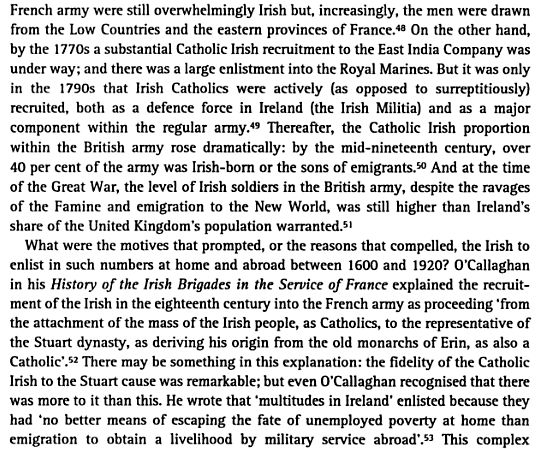| Irish Forums Message Discussion :: English trad is from Irish music of Irish emigrants. |
   | Irish Forums :: The Irish Message
Forums About Ireland and the Irish Community, For the Irish home and Abroad. Forums include- Irish Music, Irish History, The Irish Diaspora, Irish Culture, Irish Sports, Astrology, Mystic, Irish Ancestry, Genealogy, Irish Travel, Irish Reunited and Craic
|  
|
English trad is from Irish music of Irish emigrants.


|
|
|
| Irish
Author |
English trad is from Irish music of Irish emigrants. Sceala Irish Craic Forum Irish Message |
|
St Pats So Cal
Sceala Philosopher
Location: So Cal
|
| Sceala Irish Craic Forum Discussion:
English trad is from Irish music of Irish emigrants.
|
|
|
Good post that explains why a lot of Irish sounding music ended up in Britain.
The millions of Irish emigrants who settled there.
No such thing as English trad, it is Irish music, the music of the Irish people.
Trust the limeys to try and take the credit.
English trad is from Irish music of Irish emigrants.
There is some basic ignorance even among some practicioners of traditional Irish music.
Some people naively assume that some significant origin of Irish trad is from the English tradition.
This assumption is a condition of some Irish people who have been themselves conditioned to assume all things flow East West.
Is much of Irish music really English?
Only in the sense that the origin of what has recently been termed as English trad has its main origins from mainly 18 & 19th century Irish immigrants into Britain.
The sea shanty for example is from Irish sailors in the Royal Navy.
The hornpipe is also from the same Irish sailors in the Royal Navy of Nelson's time. Basically a Irish jig adapted for practical fitness in confined quarters.
Nelson who thanked God for the Irish tars after Trafalgar, where at least 4000 Sailors were poor born Irish, often pressed men after the 1798 rebellion!
Or those soldiers songs of the British army, they too are mostly Irish ballads.
This really should be no news to anyone who understands the highly significant impact of the Irish immigrants in 19th C Britain.
When it is known that the majority culture (by far) in the British army in both the 18 & 19th Centuries was the poor Irish culture.
Irish born made up over 40 percent of soldiers in the British Army . Note that's just the Irish born. Of the remainder it is certain that a significant % of them would have been the children or grandchildren of Irish immigrants.


Reference~ A Military History of Ireland
The Irish headed to where ever the work could be had, and they were going to get the hardest tasks and often lowest of pays.
The Irish congregated at every major British seaport.
All the docks and fishing industries of the 19th C were crammed with the impoverished poor Irish, who brought their songs and music.
Dirty monotonous and low paid work, would encouraged Irish cultural songs and memories of home.
The Irish Navvys on the Canals effectively invented the working and drinking mens working clubs of the North of England.
The ballads were taken to parts of Britain by Irish emigrants who made up a high number of the population of the island of Britain from the 17th century onwards, as well as long before with Irish tribes giving their name to Scotland and the Scots.
The Irish sailors in the british navy from ages past but especially during the 18th and 19th Centuries brought their shanty songs.
Interesting to learn from here of Irish bag pipers especially chosen by the Norman Kings who conquered England, and that they continued that tradition for centuries.
The crude drawings of Irish pipers and dancers at Agincourt.
That Irish American music made it way back to Ireland is accepted with ease, for what ever reason the Irish in Britain are lost and the supposed British culture gets the credit!
Irish music influence in Britain did not start with Lonnie Donegan or the Beatles or Morrissey or Oasis or The Pogues.
English trad is from Irish music of Irish emigrants.
English trad is really a borrowing from Irish music and culture.
|
|
|
|
|
|
|
|
|
|










